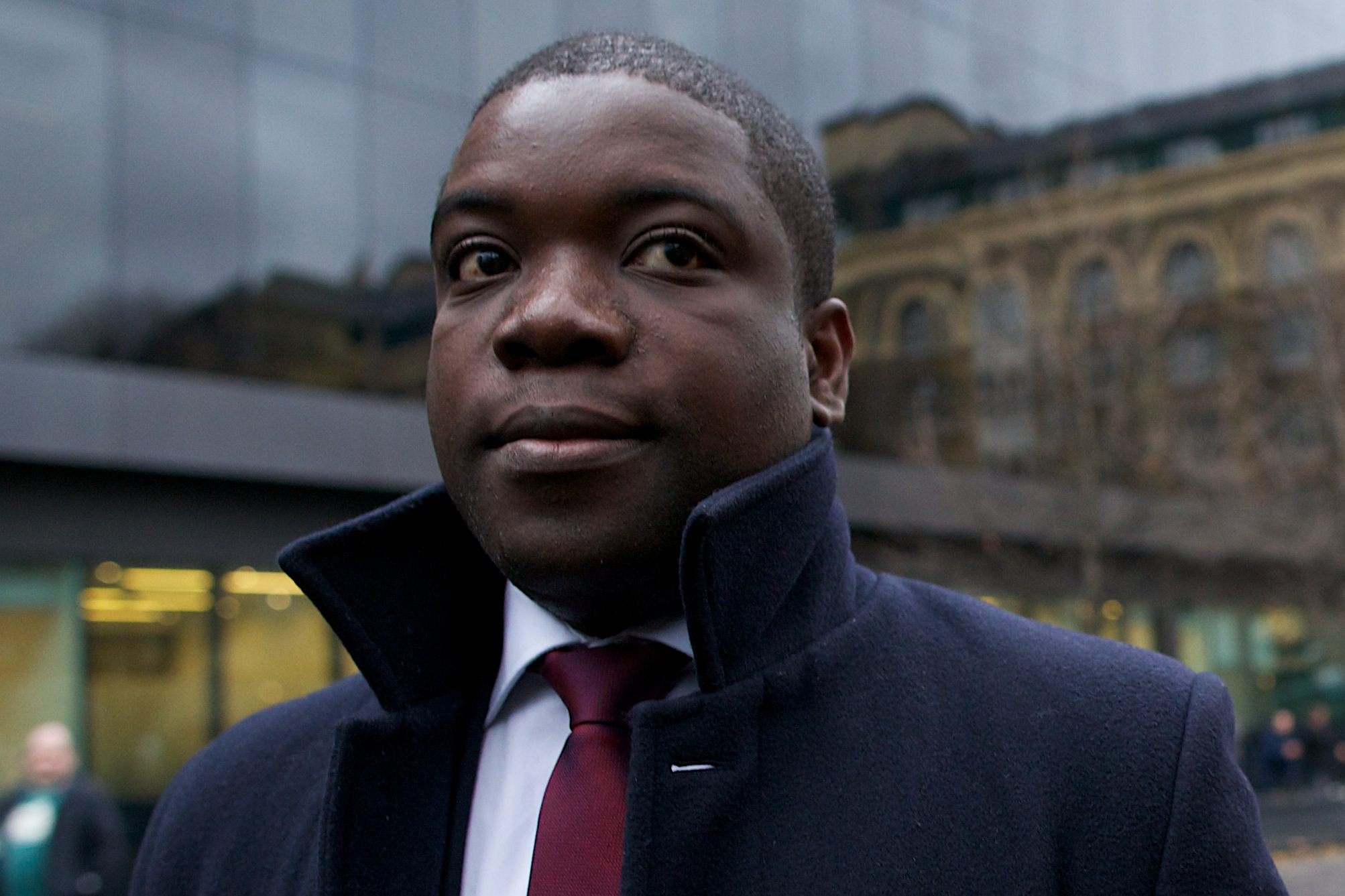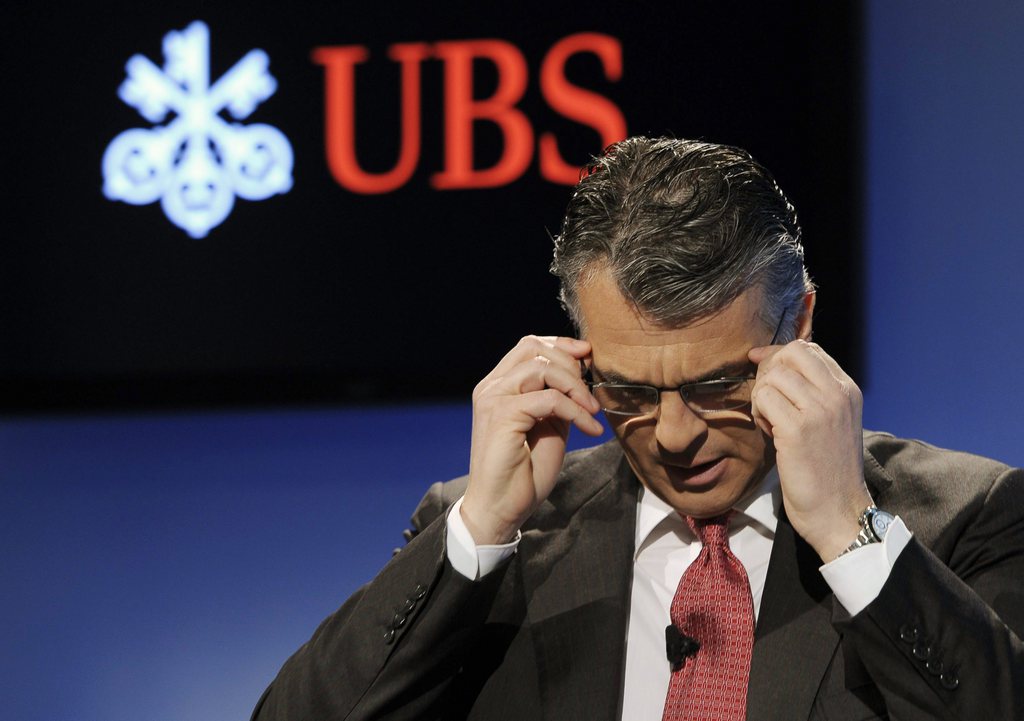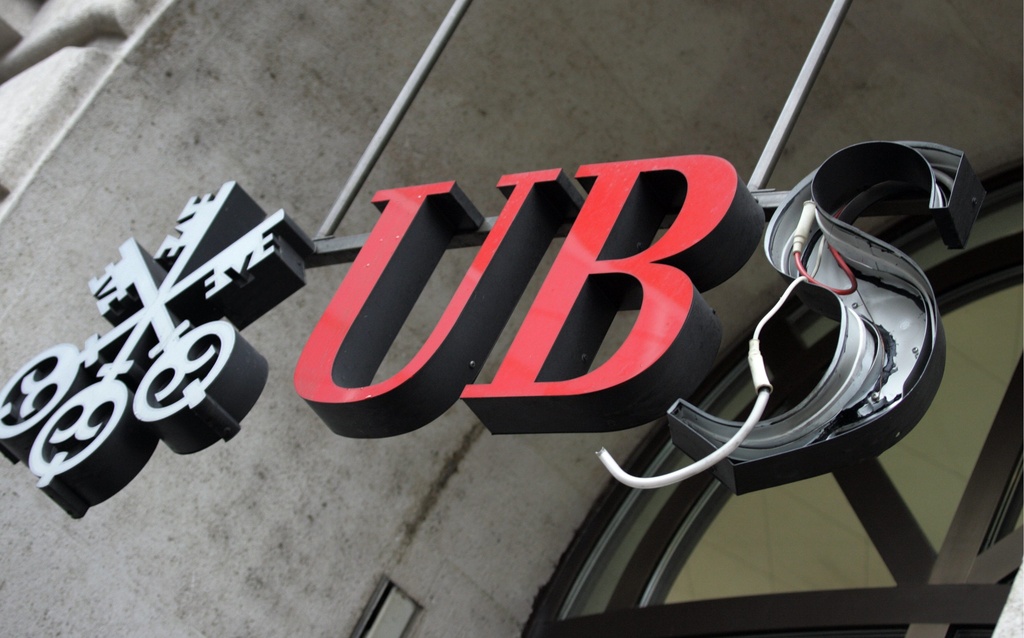Former UBS trader jailed for fraud

Former UBS trader Kweku Adoboli has been sentenced to seven years in jail by a London court after being convicted of two counts of fraud. Unauthorised trades by the 32-year-old led to a $2.3 billion (SFr2.2 billion) loss for the bank.
The verdict at Southwark Crown Court on Tuesday brings to a close a ten-week trial. The jury acquitted Adoboli of four charges of false accounting but found that the senior trader dishonestly abused his position.
He will serve half his sentence minus a year already spent in custody – a total of two-and-a-half years.
Ghanaian-born Adoboli worked for UBS’s investment banking arm, which is now undergoing drastic cuts.
UBS revealed rogue trades at its investment bank in London in September last year, prompting internal investigations into the failure of its risk systems. The scandal further dented the bank’s reputation, adding to investment losses and probes into its aiding wealthy foreigners to dodge taxes.
Adoboli had been accused of two counts of fraud by abuse of position and four counts of false accounting dating back to 2008. He had denied all charges.
The prosecution portrayed the accused as an “arrogant” investment banker who sidestepped rules when it suited him. The lead prosecutor called him a “gambler” who was “playing God” with the bank’s money.
Adoboli wept in the dock as his lawyer asked the judge to show clemency, describing his client as a sensitive, hard-working young man who had tried too hard to do well.
“The tragedy for you is that you had everything going for you,” Mr Justice Keith told Adoboli, citing his private school education, his intelligence and natural charm.
“Whatever the verdict of the jury, you would forever have been known as the man responsible for the largest trading loss in British banking history… Your fall from grace as a result of these convictions is spectacular. You were arrogant enough to think that the bank’s rules for traders didn’t apply to you.”
Like Spartacus
His defence team cast him as the scapegoat for the bank’s losses, claiming it was the management that had pushed him to take the risky positions. According to the defence, his supervisors were aware of his activities and condoned the actions because they had proved to be profitable.
The lawyers likened their client to the historic character Spartacus, a Thracian slave who at some point heroically steps forward to take the blame.
According to UBS, which is not party to the trial, Adoboli had taken speculative equity positions which he concealed by the booking of fictitious, offsetting trades so that the violation of the bank’s risk limits could not be detected.
He eventually lost control over these shadow accounts when prices collapsed in the course of the eurozone crisis.
He claimed that the losses were not the result of dishonest or fraudulent behaviour, but the result of a whole group of traders who were asked to do too much with too little resources in a market that was too volatile.
Adoboli told the court that he had lied about the nature of the transactions and the losses to his manager and people in trade support. He had told them the trades were for clients so he could buy time to fix his mistakes.
Series of blows
On September 14, 2011, Adoboli informed UBS about his losses, which at some point had reached $12 billion. By then his shadow transactions had brought about a minus amount of $8 billion, which resulted in a $2.3 billion shortfall after the positions’ liquidation.
“We are glad that the criminal proceedings have reached a conclusion and thank the police and the British authorities for their professional handling of this case,” UBS said in a statement. “We have no further comment.”
The discovery of the rogue trader is the latest in a series of blows to have pounded UBS in the past three years.
UBS was Switzerland’s only bank to receive a state bailout after incurring losses in the financial crisis. Only a year later, US authorities fined the bank for helping its citizens avoid paying taxes.
More recently, the bank announced massive layoffs in October, saying it aims to trim as many as 10,000 employees to drastically shrink its ailing investment bank. At the same time, it announced a third-quarter loss, which was partly attributed to charges linked to tougher rules on how banks must offset risky assets on their balance sheets.

In compliance with the JTI standards
More: SWI swissinfo.ch certified by the Journalism Trust Initiative




You can find an overview of ongoing debates with our journalists here. Please join us!
If you want to start a conversation about a topic raised in this article or want to report factual errors, email us at english@swissinfo.ch.